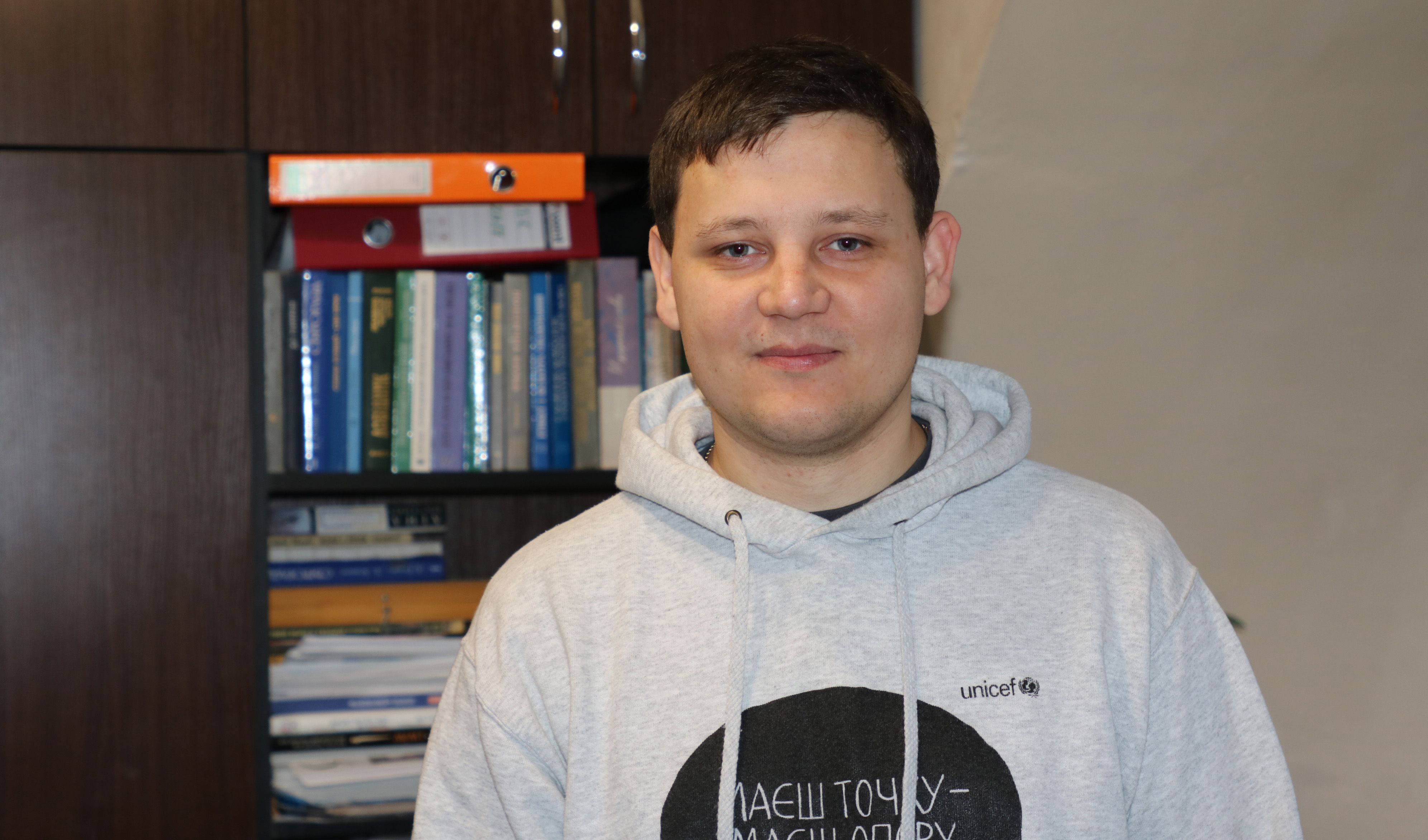Dmytro Novak, the second-year master’s student of the Software Department at the Institute of Computer Science and Information Technologies, is the author and developer of the orientation application for blind people.
It all began with the acquaintance with the Vinnytsia inhabitant, who is engaged in innovative projects in her city.
– She told me about one of them, used at the enterprise which provides work places for people with disabilities, where there were placed orientation voice beacons for blind workers. I thought it would be cool if such beacons contained some information, not only audio signals. At the Department I shared this idea and proposed to make it a subject of my master’s thesis, as besides an acoustic traffic signal for blind pedestrians, I have never seen analogues. Professor Dmytro Fedasiuk, Head of the Department, told me to go to the Resource Center for Education and Information Technologies for Persons with Special Needs that is located in our Polytechnic. There I was told that this idea is not new – voice beacons are already in canes, special bracelets, etc., and advised me to do something that would work individually. Thus I had an idea to create a programmable technical device that helps the blind to orient, said Dmytro.
Work on the application lasted 4 months (August-November 2018). Polytechnician has created mobile application and Web Client (website) where you can fill the application with the necessary information. To do it, you need to buy any bluetooth beacon, specify its MAC address on the website, attach the text which the program will voice to a blind person and place the sensor, pre-indicating its location. When blind person passes, his smartphone through the bluetooth will recognize the beacons around and announce their presence by a signal (the closer the beacon, the louder the signal will be). Then the accompanying text will be voiced in the smartphone speaker or in the headphones.
– Such beacons do not only inform the person where he is, but also, for example, tell what is ahead and at what distance, whether there is a threshold or stairstep (and how many stairsteps), as well as if it is possible to use an elevator, etc., said the developer.
Also, Polytechnician has created a map that will show the location of already installed beacons, as well as will allow reading the attached texts and information about authors. In the future, the student plans to make the application track the location of the user and gather information about all nearby beacons. To make the program work, you need to install a special application on the smartphone. Dmytro says this is not a problem:
– Modern technology significantly helps to improve the orientation – blind people can use smartphones very well, can independently get to work and use transport. I simplified the interface of the application – just open it and click on a single button. The program will work in the background, thus navigator or other functions will not interfere with the work of other programs. When the application finds a nearby bluetooth beacon, it will voice the text.
The information value of a message will depend on who wrote it. The open system will allow anyone who wants to fill the website with useful information.
Currently the application, Web Client, database and server that hosts, process and transmits information to smartphones have already been developed. At the moment, this is just a scientific project, but Polytechnician does not see obstacles to turn it into a social one.
